CST Blog
Urban Dictionary: where antisemitism is “too popular” to ban!
22 November 2017
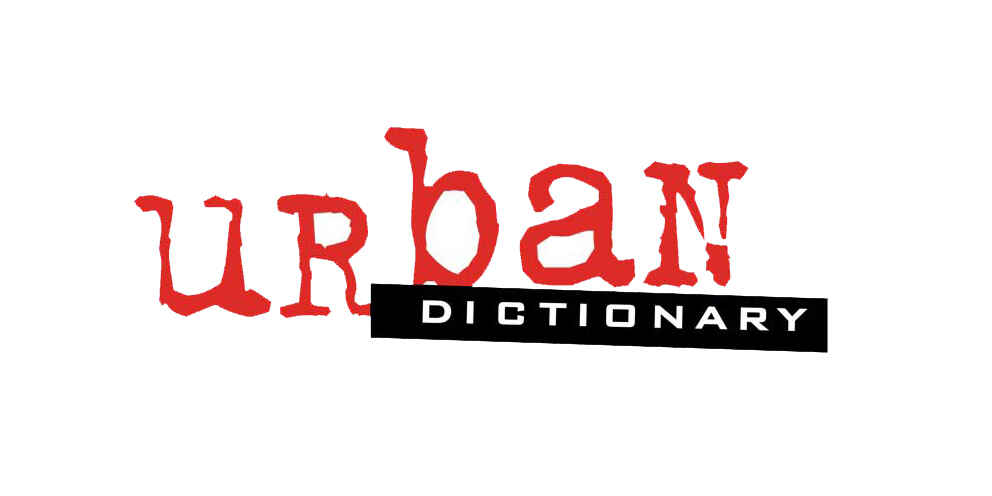
CST is inundated daily with reports about antisemitism online – whether it be on social media sites, traditional websites or blogs. CST works hard to ensure that social media companies, such as Twitter and Facebook, are educated and trained in what constitutes antisemitism and works with global partners to combat antisemitic hate website wherever they may be. However, the popular site, Urban Dictionary, appears to have removed the ability to remove, or even try to begin the process of removing, antisemitism from the internet, highlighting the lack of cooperation CST often faces when it comes to tackling hate against Jews online.
Urban Dictionary says it is “written by you”, the user. Anyone can register and anyone can attempt to define an everyday word or a currently nonexistent word. Whether it be ‘Pretendergy’ (when someone pretends to have energy), ‘Distrophe’ (combination of disaster and catastrophe indicating a serious and tragic event) or ‘Yesternight’ (literally yesterday night). However, there is a darker side to the Dictionary where antisemitic users fester and spread their hatred against Jews.
CST found several entries in the Dictionary which antisemites have edited. For example, several definitions for the word ‘Jew’, or ‘Jews’, were highly offensive. One user described a Jews as “a person who can be in an oven or ashtray…or maybe both”. This entry is the second most popular definition of the word, with over 2,665 users liking it. Antisemitic conspiracies are also rife in definitions for the word ‘Jews’, such as one entry which labelled Jews as “the people who hold all the world’s power. And are responsible for everything bad that’s ever happened.” The invented verb ‘Jew’, with over 2,640 likes, is defined as “to steal something”.
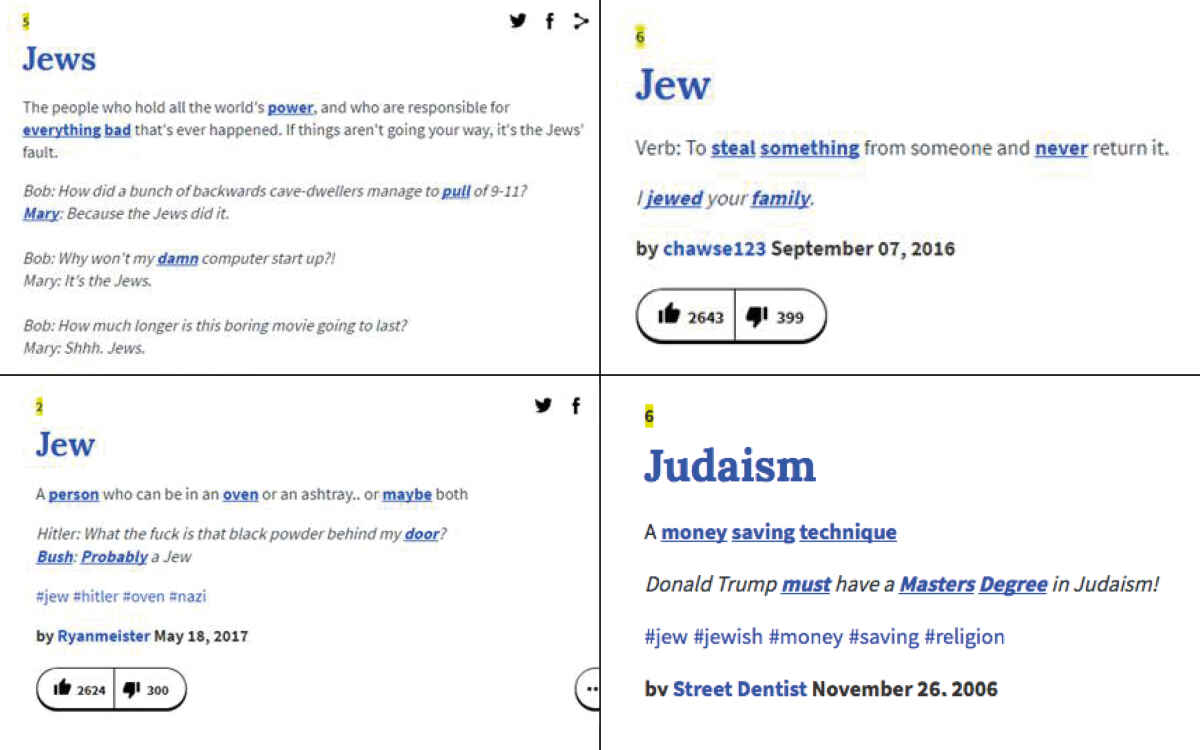
In general discourse, using the word ‘Zionist’, where the word ‘Jew’ would have previously been used in rhetoric is sometimes a methodical decision to cover one’s antisemitic tracks (see page 14 of the most recent CST Antisemitic Discourse Report for more on this issue). The entries for the word ‘Zionist’ on Urban Dictionary make this link clearer than ever, with openly antisemitic users labelling Zionists as people who “believe the Jewish race is a superior race” and who are “a pig in the temple of God”, alongside the hashtags “#money”, #theft” and “#rape”. Another user employed the antisemitic trope of comparing Zionists to Nazis: a deliberate use of the Holocaust to provoke and upset Jews. The user stated that Zionists are “pretty much Nazis…. the most hated,selfish,disgusting,racist [sic] people in the world”.
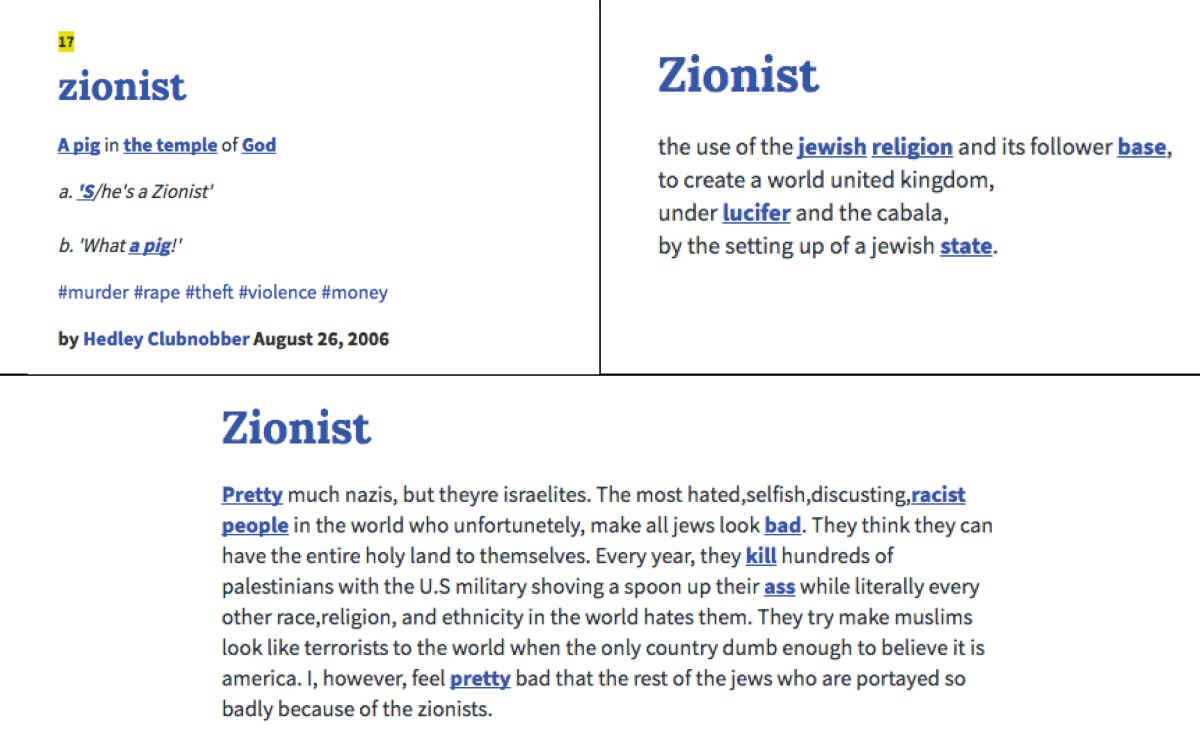
The word ‘Holocaust’ is, unsurprisingly, also used to push antisemitic content on the Urban Dictionary. Holocaust denial and attempts to underplay the impact of the Holocaust on the Jewish community are plentiful. One user claimed that Jews “are still bitching about it [the Holocaust] 60 years later even though it didn’t happen to them personally”, whilst another stated, in the third most popular definition of the word, that “the Holocaust never happened, it is just a story that British people tell to get others to destroy Germany”. Hashtags used by editors on the site include “#Jew Gold”, “#f**king awesome”, and “#vacation” to downplay, whilst at the same time praising, the Holocaust.
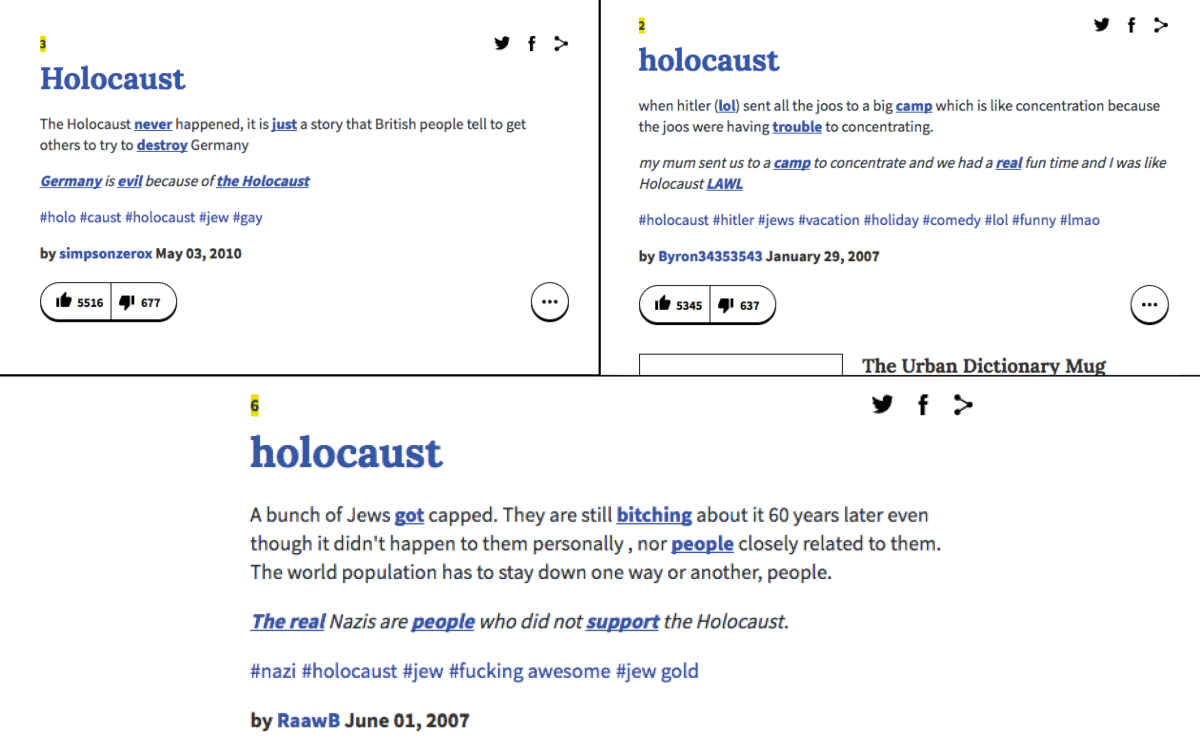
The word ‘kike’, a highly offensive and derogatory word for a Jewish person, has, predictably, countless antisemitic entries on the Dictionary. One user stated the word means “a member of a god-hating tribe that…. often take “waspy” sounding names and pass for white” whilst another defined the word as a “sneaky Jewish person”. Again the hashtags were equally as antisemitic, including the words “#degenerate” and “#sub-human” to describe Jews.
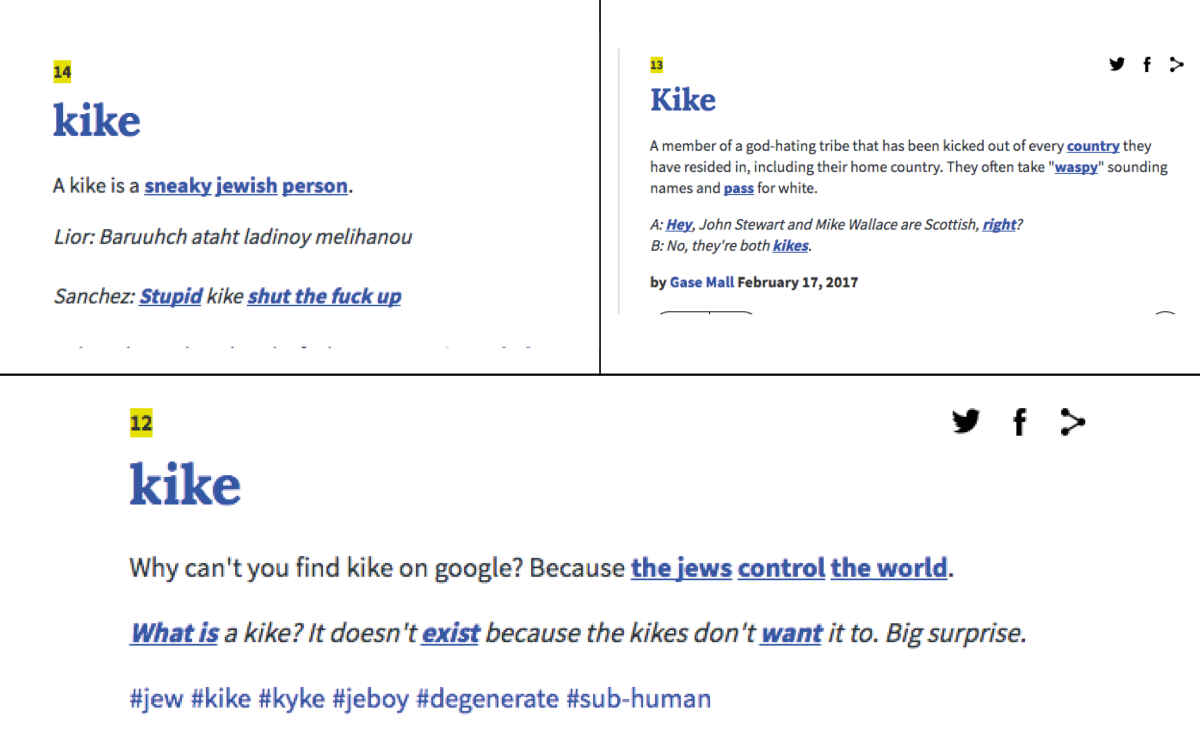
CST regularly receives reports of similarly antisemitic content on social media platforms such as Twitter and Facebook. CST reports them to the platforms, with a varying degree of success. The social media companies have in place mechanisms to at least attempt to remove the content. However, Urban Dictionary has simply ignored their duty to stop hate. If an editor attempts to remove a definition for any reason, whether it is incitement to hatred, abuse or hate speech, it often cannot be done. Urban Dictionary’s own terms of service state a user must not “use the website for any illegal activity or to violate laws in your jurisdiction.” It also states that it will not allow content or behavior which, at the discretion of Urban Dictionary include, “abuse, harassment, threats of violence, flaming, intimidation of any person or organization, or any other threatening behavior”.
On the other hand, Urban Dictionary attempts to negate its responsibility for content posted by stating that “the website is not suitable for all audiences. Its content is frequently presented in a coarse and direct manner that some may find offensive. If you do not consider yourself an appropriate user or are offended, please do not visit the website.”
Despite Urban Dictionary claiming it does not tolerate abusive behaviour, it has clearly allowed antisemitism to flourish. Furthermore, Urban Dictionary does not offer the option for users to report or remove abusive content. One definition CST attempted to remove was an entry for the word ‘Jew’, that claimed it means “someone that you burn” – alluding to the Holocaust. The entry has been included by a user calling themselves ‘KKK_Leader’ suggesting that they are a supporter of the antisemitic and racist American group, the Ku Klux Klan. Urban Dictionary’s response to the CST report highlights the inability, and unwillingness, of large companies to remove vile antisemitic content from the internet: the only response CST received was “this definition is too popular” to remove.
Read More

Love since 7 October
14 February 2025

Antisemitic Incidents Report 2024
12 February 2025

The Fall of Assad and the Zionist “Evil Plan”
8 January 2025